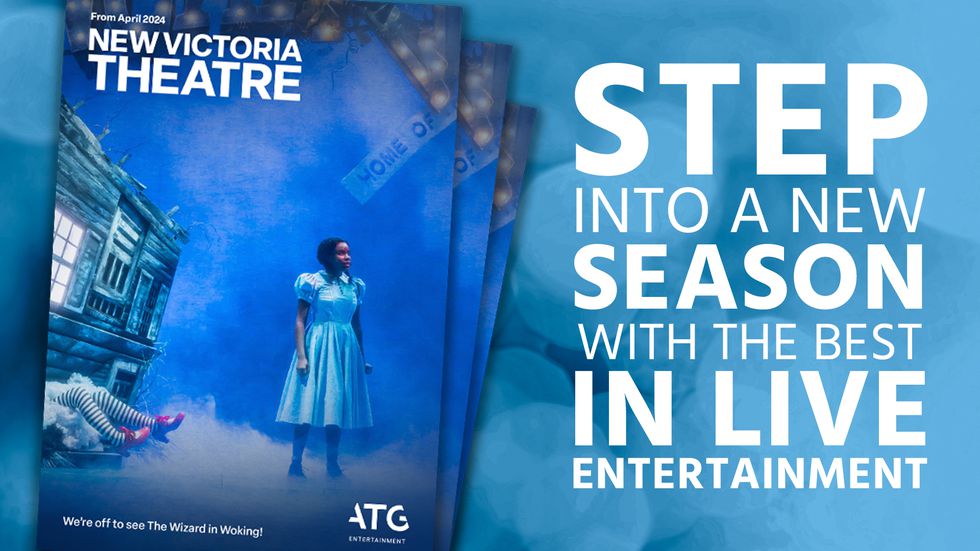
TV presenter, author and scientist Alice Roberts is taking her unique brand of history and science on the road. Jane McGowan finds out more...
Q. Your biog lists you as having a lot of ‘ologies’ – how do you describe your work?
My Wikipedia entry certainly includes a lot of ‘ologies’ – but really they’re just subsets. I’m a biologist. Within that, I’d describe myself as a human biologist and evolutionary biologist. Then I’ve specialised in the structure of the human body – so human anatomy, which is more broadly construed as biological anthropology. Within that, I’ve focused on bones, particularly archaeological – so that makes me an osteoarchaeologist. And within that, I have focused on looking at disease in old bones – palaeopathology. So you could skip all that detail and just call me a biologist!
Q. What sparked your initial interest in science?
I loved science from an early age – I was always asking questions about the world around me, and I was particularly fascinated in biology. I studied medicine and worked as a junior doctor, but it was a six-month job at Bristol University, where I taught anatomy to medical students, which rekindled my love of anatomy. I thought I’d eventually go back to surgery, but academia had snared me – in a good way!
Q. How did you get your TV break?
I started doing reports on human bones excavated on the Channel 4 series, Time Team, and in 2001, they invited me along to an actual dig. I had a brief speaking part and got asked back to appear as a bone expert in a later series. And then one thing led to another. In 2005, I joined the original presenting team of Coast, and in 2009, I had my first solo landmark series on BBC2 – a global epic looking at ancient human colonisation of the globe, called The Incredible Human Journey.
Q. Have you been surprised at how much the viewing public has embraced science and history programming?
No, because they’re such fascinating subjects! I think there can be a nervousness from commissioners that these subjects can be dry and might need spicing up, but my experience is that if you’re true to the science and tell a good story, people love it.
Q. What can people expect from the tour? And why did you want to go on the road?
I’ve just finished filming my second series of Britain’s Most Historic Towns for Channel 4 and it seemed like a good time to go back and look at the sites I’ve worked on over the years since my first Time Team dig. History is such a huge subject, but archaeology allows us to get up close and personal with the past – with our heritage. Using particular sites, I’ll tell a history of Britain, but expect plenty of anecdotes and behind-the-scenes stories too.
Q. As a successful scientist, author and presenter – is there anything career-wise you would still like to achieve?
I’ve just achieved one of my ambitions presenting the Christmas Lectures and that was definitely a career high! Another was interviewing David Attenborough at the Science Museum a few years ago – he is such a hero of mine and it was humbling to be able to spend an evening in conversation with someone who has been such a pioneer of natural history television – right from its earliest inception.
Right now, there are a few series of ideas I’m working on, but I’d really love to do a series on the Bronze Age – it’s such an exciting period of prehistory.
Q. And finally, with all the turmoil in the world today, how do you think future historians will view us?
With perplexity, I think. We have the means to solve the big global challenges facing us – feeding the human population, mitigating climate change and biodiversity loss. But we’re behaving like a collection of independent city-states, each jealously guarding its own assets. My eight-year-old daughter asked me the other day, “Why do we have countries?”. That question goes right to the heart of it – we want the same things – we want to be safe and healthy. We want our children to be safe and healthy. We’ll achieve that if we start working together and stop behaving like separate tribes. I think future historians will look at 21st-century developed countries and view them as not that different from medieval kingdoms, with an enduring chasm in lifestyles and opportunities between the rich nobility and the poor peasants.
An Evening With Alice Roberts – Digging into the Nation’s Past – is at Richmond Theatre on Jan 10. For more details and tickets, visit: atgtickets.com






